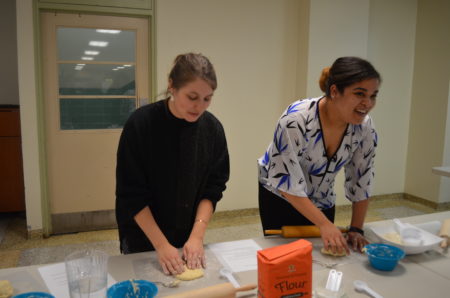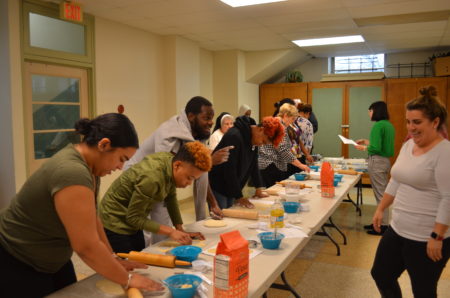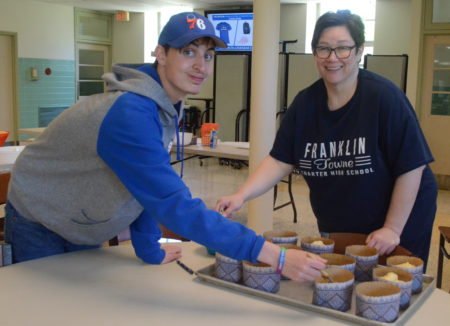Basilian Bread: A Fresh-Baked Tradition on Campus
How can you bring together the campus community while honoring the tradition of Catholic Basilian hospitality? The idea took a bit of kneading, but before long, Assistant Resident Director Lynn Wales and Campus Ministry had cooked up a plan.

Wales noted that the most rewarding part of the experience might be the interactions students have not only with each other, but with staff and faculty as well. “You’re making bread next to someone you’ve never met before, asking questions and measuring out ingredients. While it takes a lot of planning and effort to make this event happen, it’s worth it for the moments of joy it creates on campus,” she explained. “It’s everyone coming together, and working together.”
“It’s everyone coming together,
and working together.”

“Students are asking questions and learning hands-on skills,” said Chrystyna Prokopovych, curator of the Ukrainian Heritage Museum. Prokopovych donates her time and expertise, helping to lead Ukrainian-themed bread bakings. “Ukrainian culture revolves around bread,” she explained. “Ukraine has long been known as the ‘breadbasket’ of Europe.”

So far, student participation has been high. “We’re seeing students come back each time, and it’s definitely a growing tradition,” said Prokopovych. “Ideally, one day the students may lead this activity themselves, teaching us
about their cultural traditions—and I think that will definitely happen.”